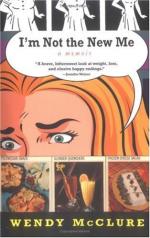The town offered then little in the way of amusement. The Adelphi Theatre was opened that winter for the first time, and presented a variety of mediocre plays. At the Olympia were “lively and beautiful exhibitions of model artists.” Herz and Sivori, the pianists, then touring in the United States, played several times in the season; and there was a Chinese Museum. Add the exhibitions of Brown’s paintings of the heroes of Palo Alto, Resaca, Monterey, and Buena Vista, and of Powers’s “Greek Slave,” the performances of Dr. Valentine, “Delineator of Eccentricities,” a few lectures, and numerous church socials, and you have about all there was in the way of public entertainment in Washington in 1848. But of dinners, receptions, and official gala affairs there were many. Lincoln’s name appears frequently in the “National Intelligencer” on committees to offer dinners to this or that great man. He was, in the spring of 1849, one of the managers of the inaugural ball given to Taylor. His simple, sincere friendliness and his quaint humor won him soon a sure, if quiet, social position. He was frequently invited to Mr. Webster’s Saturday breakfasts, where his stories were highly relished for their originality and drollery.
[Illustration: STEPHEN A. DOUGLAS, COLLEAGUE OF LINCOLN’S IN CONGRESS.
Member of the United States House of Representatives during the twenty-eighth and twenty-ninth Congresses. In 1846 Douglas was chosen Senator by the Democrats.]
[Illustration: WILLIAM A. RICHARDSON, COLLEAGUE OF LINCOLN’S IN CONGRESS.
Richardson removed to Illinois from Kentucky about 1831. He was a prominent Democratic politician, serving in the state legislature and in Congress. He was a captain in the Mexican War, Governor of the territory of Nebraska in 1858, and in 1863 the successor of Douglas in the United States Senate. He died in 1875.]
[Illustration: SIDNEY BREESE, COLLEAGUE OF LINCOLN’S IN CONGRESS.
Sidney Breese was born at Whitesboro, New York, July 15, 1800; graduated from Union College, New York, in 1818; and at once removed to Illinois, where he was admitted to the bar. He became active in the Democratic party, and served in many important positions: United States District Attorney, Judge of the Supreme Court, and United States Senator. He died in 1878.]
Dr. Busey recalls his popularity at one of the leading places of amusement on Capitol Hill.
“Congressman Lincoln was very fond of bowling,” he says, “and would frequently join others of the mess, or meet other members in a match game, at the alley of James Casparis, which was near the boarding-house. He was a very awkward bowler, but played the game with great zest and spirit, solely for exercise and amusement, and greatly to the enjoyment and entertainment of the other players and bystanders by his criticisms and funny illustrations. He accepted success and defeat with like good nature and humor, and left the




